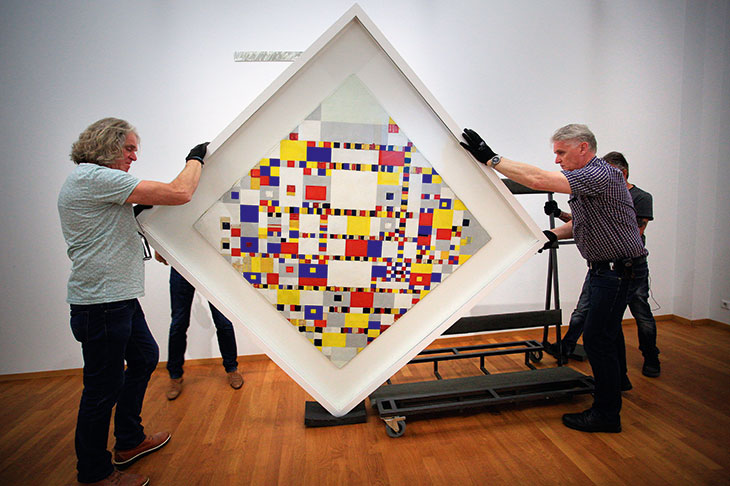It starts as soon as I arrive. In Den Haag Centraal railway station, the kiosks, windows, lift shaft, piano and even the hoarding on the building site outside, are all cheerfully decked out in red, blue and yellow rectangles, black lines and an occasional patch of straight-sided white. Holland’s capital has gone Mondrian mad; the style of De Stijl (the modernist art movement to which he belonged) is plastered all over town, indeed over much of the country. Holland is in the grip of ‘Mondrian to Dutch Design: 100 Years of De Stijl’, a year celebrating its ‘most important contribution to the 20th century’.
De Stijl’s influence is everywhere. It has influenced (and disrupted) the Bauhaus, modernism and the International Style in architecture; it’s visible in today’s colour blocking, visible construction, open-plan living.
‘The Style’ was born in October 1917 as a magazine in the lovely university town of Leiden. It was midwifed by painter, architect and artistic agitator Theo van Doesburg. Celebrated this summer in an open-air exhibition of geometric art outside Leiden’s 900-year-old Pieterskerk, this was a bloodless October revolution. De Stijl reacted to the first world war by promoting an abstract aesthetic for what was felt as well as what was seen; it aimed to put art into everything and usher in a better future. In The Hague’s Gemeentemuseum home of this year’s flagship Mondrian exhibition, the permanent collection includes Francis Bacon and a mobile of noose-hung animals by Bruce Nauman. Important though these are, they make me appreciate Mondrian all the more. In the museum’s comprehensive overview of his work, we see him from his earliest windmills and canal-reflected trees to his famous ‘balanced’ asymmetric geometric compositions, always offering not horror, but hope.
In Eindhoven, today’s capital of Dutch design (which hosts another of the year’s many De Stijl exhibitions), I sit over coffee with the programme director of Dutch Design Week.








Comments
Join the debate for just £1 a month
Be part of the conversation with other Spectator readers by getting your first three months for £3.
UNLOCK ACCESS Just £1 a monthAlready a subscriber? Log in